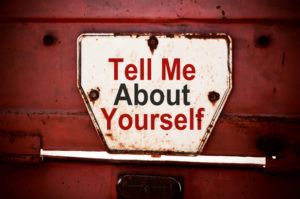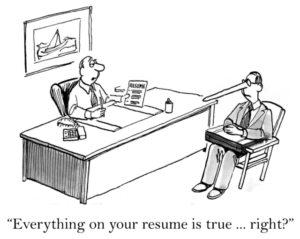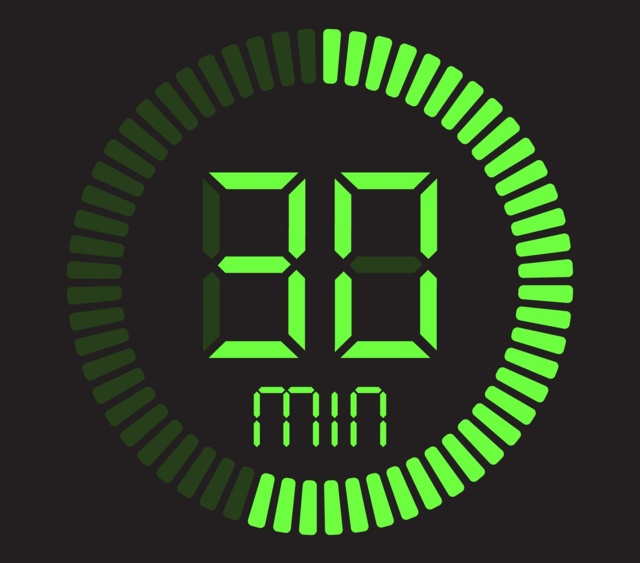Ask the Recruiter How to Prepare for the Interview, Then Follow this Guide
You got the email or phone call you were waiting anxiously for. You have been chosen to interview for the role you are excited about. Now it’s time to prepare for the interview. Of course, the more time you have to prepare, the better. However, you don’t always get several days to prepare. You could have an interview the afternoon following your invitation. Though you don’t have the time you would like to prepare, if you have 30 minutes, you can still shine in your interview. Follow each of the steps we outline below ahead of your interview. If you do, you will feel your interview confidence grow minute by minute. Without further ado, let’s dive into our first tip to prepare for your interview: ask the recruiter how to prepare for the interview.

Ask the Recruiter How to Prepare for the Interview
Once you get an invitation for your interview, ask the recruiter how to prepare for the interview. This seems like an obvious point. With that said, many people do not ask their recruiter how they can prepare. Your recruiter knows exactly how their organization structures interviews. They also know the interview styles of all of the recruiters they work alongside. Both of those qualities influence how an interview is conducted. No Google search will be able to clarify what to expect as well as your recruiter. Beyond a simple “how can I prepare for my upcoming interview?” there are specific questions you can ask to learn even more.
“Who will I have the pleasure of interviewing with?”
You may know that you are interviewing with the person that notified you of your interview. You could also learn about the interview from a Recruiting Coordinator. In either case, knowing who you are interviewing with allows you to do research ahead of your interview. You can learn more about your Recruiter’s professional background by finding the individual on LinkedIn before your interview. Doing so will set your own expectations. It will also allow you to highlight the fact that you did research ahead of your interview. An example of that, in your interview, is to incorporate something you learned about your Recruiter into one of your questions. “I saw on your LinkedIn you worked at [workplace] before joining [current employer]. What did the transition period look like for you? Is there anything you found particularly helpful to accelerate your learning?” There is a lot to learn when you get specific. Don’t just ask the recruiter how to prepare for the interview.
“What will the structure of my interview look like?”
All companies structure their interviews slightly differently. As do different interviewers. When you ask the Recruiter how to prepare for the interview, ask about the structure. The Recruiter will answer with consideration of the company’s approach as well as what they need to learn about you. As a sales candidate, you might also ask if you will be asked to pitch a product in your interview. Doing so will allow you to prepare a high-level pitch proactively.
“What can I come prepared with to ease the process for you/my interviewer?”
You can always expect to share specific metrics when interviewing for a sales role. Likely, that will be part of the answer when you ask the Recruiter how to prepare for the interview. With that said, there may be additional documents needed to begin a background check, you may need several resume copies, etc. More than anything, asking this question shows you are considerate of your Recruiter’s time.
Ask the Recruiter How to Prepare for the Interview – Check
Now that you have taken the time to ask the Recruiter how to prepare for the interview, you can start preparing. Begin by diving into any of the specifics that were highlighted when you spoke with your Recruiter. That includes taking notes from LinkedIn research, preparing a pitch, and gathering documents and metrics. After that, you will want to put yourself in the shoes of your Recruiter.
If you were considering hiring yourself for the position, what would you want to better understand? That lens is how you should look at your resume and past experiences. It will give you a sense of the types of questions that will be asked. When you ask the Recruiter how to prepare for the interview, they won’t share specific questions you will be asked. That is something you will experience in the interview itself. With that said, there are assumptions you can make in order to practice.
Perhaps the most important thing you need to do ahead of your interview is simply talk about your professional background aloud. Without knowing exactly what your Recruiter will ask you, you can still improve your interview confidence. Give yourself prompts to practice responding to. Below are some you can use that follow the types of questions you could be asked:

“Tell me about yourself”
One of the most common ways a Recruiter starts an interview is by asking you to tell them about yourself. It is such an open-ended question that many candidates get nervous by it. Think of this interview question as a prompt to share a 30-second elevator pitch about yourself. Practice said pitch before your interview. Even if you don’t get asked this question specifically, it is a great one to practice. It will show you the aspects of your professional background you want to highlight in your interview. Additionally, it is a great way to practice bragging about yourself (humbly). Interviews are a time to take pride in all of your hard work. It can be uncomfortable to do so. Practice will ease the discomfort.
“What do your most recent performance metrics look like?”
Past performance is always thought to be the best indicator of future performance in a sales position. You should certainly come prepared with specific performance metrics to share in your interview. That may have come up when you took the time to ask the Recruiter how to prepare for the interview. More than providing the metrics, you should practice contextualizing those metrics for your interviewer. All organizations have different conversion rates, different sales cycles, etc. To ensure your interviewer understands how fantastic your metrics are, give them insight into how they compare.
“Walk me through your current sales pitch”
If you have ever clearly laid out your sales pitch before, it has likely been a while. Practice explaining each component in your sales pitch and the intention behind it. Your Recruiter will want to know more than just the pitch itself. They will also want to know what you deem to be important in your pitch. Great salespeople have a strategy behind every syllable in their pitch. Don’t give your interviewer the impression you aren’t highly intentional simply because you haven’t practiced explaining your pitch recently.
“Tell me about a recent objection you overcame”
Being a great salesperson means you have become highly skilled in overcoming objections. Your interviewer will want to get insight into that one way or another. Spend time reflecting on recent objections you have received from potential customers. Come prepared to share the one you’re most proud of. You likely have a few to choose from, so select the one that you feel best highlights your strengths as a salesperson.
“What are you motivated by?”
You may not receive a question that directly asks about your motivations, but it is something your interviewer will try to learn more about. This won’t come up when you ask the Recruiter how to prepare for the interview. However, it will come up in your interview in some way – directly or indirectly. Take time to practice sharing your motivations. When you are in your interview, the time you spent practicing will allow you to seamlessly incorporate your motivations where appropriate.
“How do you persevere through rejection?”
The things that motivate you may be what helps you persevere when you have several rejections in a row. Nonetheless, knowing a salesperson can reenergize themselves and give their next interaction “their all” is important. Think about specific things you do when you feel yourself in need of a reset and be prepared to share. Resilience is a core competency required for salespeople, so your interviewer will definitely be screening for it.
“Walk me through a recent mistake you made”
Interviews are a careful balance of humbly bragging about yourself while also getting vulnerable. You are human. You make mistakes. We all do. Your interviewer will likely want to hear how you talk about past mistakes, what you did to resolve them, and what you learned. Find a couple of examples you could share and practice articulating them in the format shared previously. Not having an example to share with this question will be perceived as a red flag, so be prepared.
Spend Time Developing Questions
When you ask the Recruiter how to prepare for the interview, they will advise you to come prepared with questions. The questions you ask are your opportunity to evaluate the role and company. You are being evaluated by your interviewer, but you should also evaluate them. As you are preparing for your interview, you will start by using the lens of a Recruiter. Doing so allows you to identify aspects of your professional background you want to highlight in your interview. After you have practiced articulating your own background, using the guided questions above, it’s time to use a new lens. Using the lens of an employee spending 40+ hours a week there, develop a list of questions. To help you get in the right mindset, here are a handful of example questions and why they are useful:
“What does training look like in this role?”
You took the time to ask the Recruiter how to prepare for the interview. Now you can ask the Recruiter how to prepare for the job. Depending on your qualifications, you may need more or less training. With that said, different companies have more or less thorough training programs. It’s best to set your expectations for what your training and onboarding will look like. That will ensure it aligns with what you need. A great follow up question is what compensation looks like in training, given your commissions will be limited.
“How would you describe the culture on the team?”
All organizations have their own cultures, but so do individual teams within organizations. You can certainly ask about both. The culture of the team will impact your day to day more than organizational culture, though. It’s another important quality to learn more about so you can decide if the culture is one you would like to be part of.
“What separates a top performer from an average performer?”
Whether you are interviewing for a sales role or not, performance will always be part of your job. By asking about what top performers look like, you get insight into what you would have to do to become a top performer. The things you learn may excite you or turn you off from the position. Either outcome is very important at this stage in your process.
Keep in mind these are each example questions to help get your gears turning. The most productive use of your opportunity to ask questions will always be on things personal to you. That advise may have come up when you took time to ask the Recruiter how to prepare for the interview. Every professional has unique wants, desires, and needs with an employer and workplace. Your interview questions should give you clarity into how the company you’re interviewing with aligns. With all of this said, it can be intimidating to develop personalized questions – particularly when you’re short on time. Here are a handful of points to research to help you uncover questions you may uniquely want to ask:
Find the vision and values of the company
You might already know the vision and values of the company. If so, revisit them. How do those values and where the company is headed align with you? Do you feel inspired and excited by them? Is there anything you would like clarified or insight into how it’s practiced?
Reflect on points in the job description
When you took the time to ask the Recruiter how to prepare for the interview, they may have said this. Review the job description for the role you applied to again. Within the description, what are you enthusiastic about and nervous about? Both ends of that spectrum present a great opportunity for a question. “How much time can I expect to spend on X each day?” The answer to that could add to your interest or take away from it.
Find company reviews from employees and customers
Employee and customer reviews are a great place to learn more about the company. Positively and negatively, you can learn something new about the organization you may want more insight into. Highlighting that you spent time doing research will also be something your interviewer thinks highly of.

Recap of How to Prepare for an Interview in 30 Minutes or Less
Reading each of the sections listed above may be overwhelming. There is certainly a decent amount preparation needed. Perhaps more than what you think you can do in 30 short minutes. If you break down each of the sections above into blocks of time, you will see it is entirely possible. Follow the below high-level guide, which includes time you will spend on every suggestion we listed previously.
1. Ask the recruiter how to prepare for the interview – 5 minutes*
Ideally, this will be done before the rest of your interview prep. If not, let’s remove 5 minutes from our projected 30 minutes for tips from your recruiter. Use the questions we highlighted in our first section for information gathering. Of course, ask any other specific questions you are curious about.
2. Practice answering common interview questions – 15 minutes
Using the questions in our second section above, practice answering common interview questions aloud. Though it may seem unnecessary, hearing yourself articulate responses is helpful in highlighting adjustments you may want to make.
3. Write down questions you would like to ask – 10 minutes
We shared some example questions in section three. However, the questions you ask should be personal to you. Read through the questions we shared, then navigate each research item. Ideally, you should have 3-5 questions written down ahead of your interview. You may not have time to ask them all, so prioritize your questions from most to least important.
If you have a spare 30 minutes, you have more than enough time to prepare yourself for your upcoming interview. By following this guide, you will feel your interview confidence grow with each passing minute. If you have more than 30 minutes and would like help from experts in the field, lean on Sales Recruiters Chicago. They are a powerful resource to empower you through your career search. Whichever approach you take, your diligence in your preparation is a signal you are going to thrive.



Comments are closed.